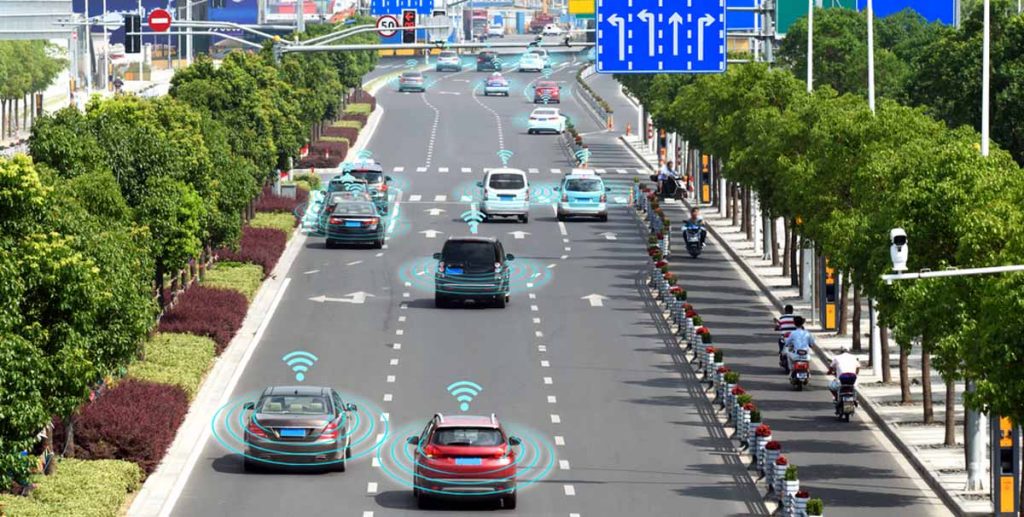One mile of Detroit’s wireless EV charging road to cost at least $1.9 million

The state of Michigan will spend $1.9 million to build a one-mile stretch of the nation’s first public wireless in-road charging system for electric vehicles (EV) in Detroit.
The system is expected to be running in 2023.
“As we aim to lead the future of mobility and electrification by boosting electric vehicle production and lowering consumer costs, a wireless in-road charging system is the next piece to the puzzle for sustainability,” Gov. Gretchen Whitmer said in a statement. “I am happy to see Michigan lead and keep building on these ground-breaking initiatives creating new business opportunities and high-tech jobs.”
Israel-based Electreon will partner with NextEnergy and Jacobs Engineering Group to build a one-mile electric road system (ERS) to charge moving and parked EVs in a pilot program. Michigan Central, a Corktown-based mobility innovation district, will host the project with help from partners Ford Motor Co., DTE Energy, and Detroit.
Michigan Department of Transportation (MDOT) will provide $1.9 million for the pilot project, with Electreon contributing the rest. A spokesperson didn’t directly respond to an inquiry by The Center Square how much money “the rest” was.
MDOT Director of Communications Jeff Cranson hasn’t responded to multiple email and phone questions from The Center Square about the program, including whether the money for the project came from the state or federal government or whether the money was fungible.
Electric roadways could accelerate EV adoption by charging vehicles while moving or parked, but at a high cost to taxpayers – most of whom don’t drive EVs. Statewide, there are 5.8 million gas vehicles, 13,545 EVs, and 105,651 hybrid vehicles registered.
The $1.9 million spent to build one mile of EV road could have repaired 792 miles of road, assuming the money is fungible and the 2020 statewide average per lane, per mile road repair cost of $2,398.
The cost of building out electrified roads would compound as Michigan boasts over 122,000 miles of public roadway that would cost roughly $231 billion to electrify, assuming a cost of $1.9 million per mile.
Jason Hayes, director of environmental policy at the free-market Mackinac Center for Public Policy, pointed to the state’s “dismal” history of dumping millions of dollars into tech companies.
“Contrary to the ebullient fanfare that typically accompanies these announcements, our state has a dismal history when it comes to government trying to pick technology winners and losers,” Hayes wrote in an email. “Governor Whitmer and her predecessors have spent millions of our tax dollars over the past several decades propping up the wind and solar industry, the battery industry, and electric vehicles. Now they plan to spend even more promoting EV charging infrastructure. The real test of these technologies would come if they were allowed to compete without tax dollars pushing them forward.”
One concern of the state spending millions on EV road technology is uncertain ongoing repair costs, which are currently unclear.
The project aims to calm “range anxiety” – one common EV drawback since batteries provide less range in cold weather and fewer “refueling” options than gas engines.
“Michigan is aggressively rolling out various charging solutions and we need to continue to stay ahead of the technology curve,” State Transportation Director Paul C. Ajegba said in a statement. “A wireless in-road charging system will be revolutionary for electric vehicles, potentially extending their charge without having to stop.”
Michigan offers nearly 600 miles of roadway equipped for connected vehicle testing and is exploring building a new 40-mile corridor project.
Electreon Vice President Stefan Tongur welcomed the deal.
“We’re excited to be transferring our success in wireless charging for a variety of electric fleets – from cars to buses and heavy-duty trucks – to this innovative project,” Tongue said in a statement. “There’s important work ahead with our partners in Detroit to develop scalable, ‘plug-free’ charging that will future-proof the city’s EV infrastructure.”
This article was originally posted on One mile of Detroit’s wireless EV charging road to cost at least $1.9 million



